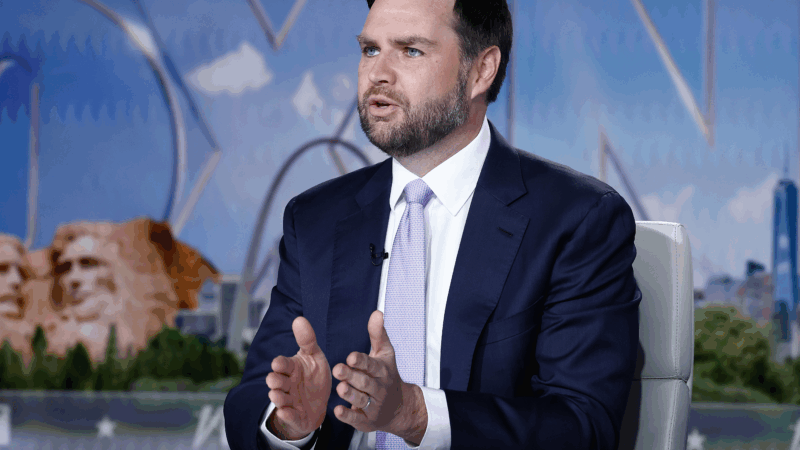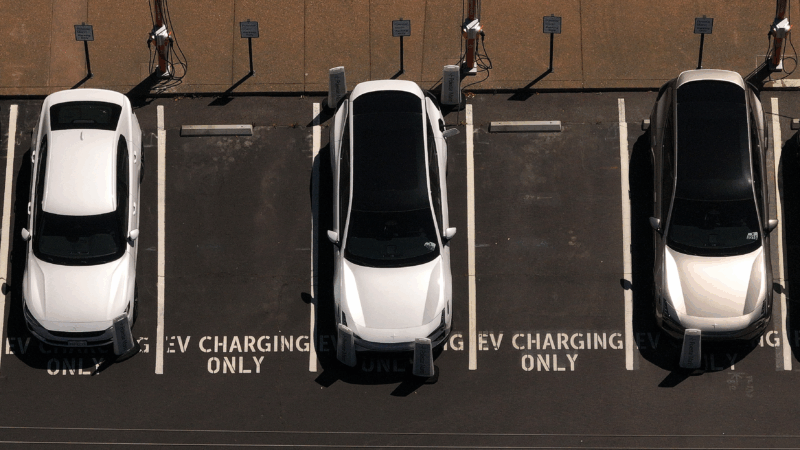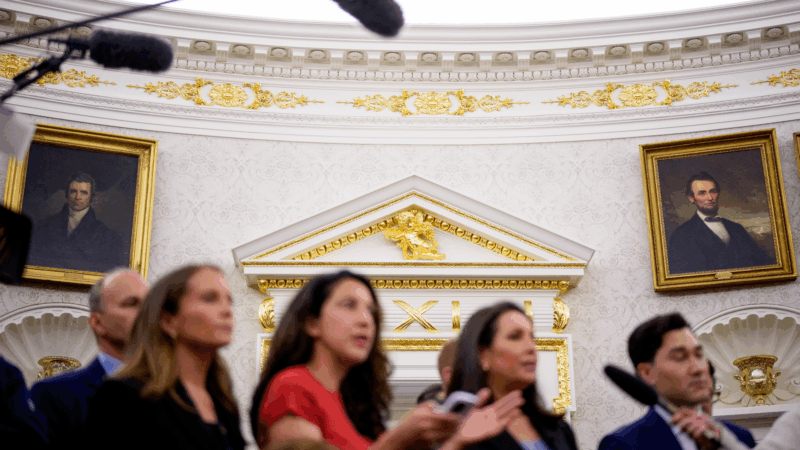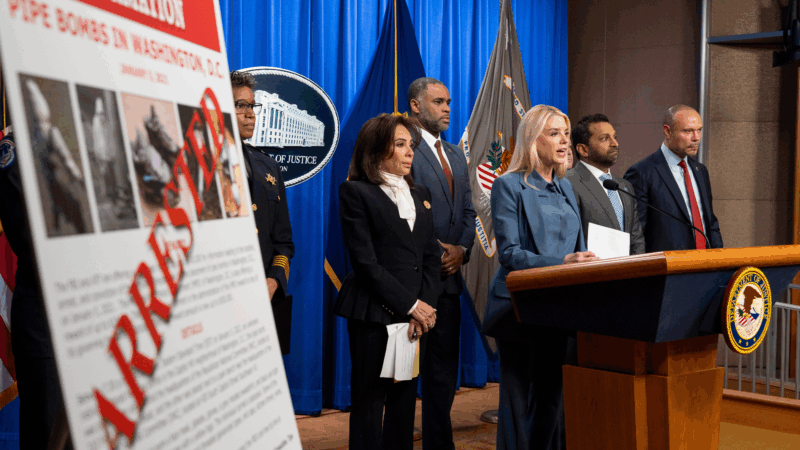Vice President Vance says India-Pakistan fighting is ‘none of our business’
MUMBAI India — Vice President Vance said that the current escalation between India and Pakistan was “fundamentally none of our business,” as they traded blows overnight Thursday and early Friday evening using drones and projectiles, reaching places that have not been targeted in decades on either side.
Vance spoke on Fox News late Thursday, in response to a question about if the Trump administration was worried about nuclear conflict. “We want this thing to de-escalate as quickly as possible,” and added: “We can’t control these countries though.”
“What we can do is try to encourage these folks to de-escalate a little bit, but we’re not going to get involved in the middle of a war that’s fundamentally none of our business and has nothing to do with America’s ability to control it.”
Vance said the administration was pursuing de-escalation through diplomatic channels and said he did not think nuclear war was a likely scenario. Secretary of State Marco Rubio said Thursday he spoke to the Indian foreign minister and the Pakistani prime minister.
“This might embolden both sides,” Praveen Donthi, an India analyst for the International Crisis Group, said of Vance’s comments. He said the escalation between India and Pakistan has been “breaching a new threshold every day, and we don’t know when it is going to stop.”
Vance’s comments signaled a more hands-off foreign policy, said Arifa Noor, a columnist for the liberal newspaper Dawn. During previous escalations in 2019 and 1999, Washington worked intently to dial down tensions.
The problem, she said, is “I do not think that there is another power that can step into this vacuum” even as the two countries had long relied on the U.S. for “stepping in and talking the two countries off the ledge.” Now more than ever, she described them as “two nuclear powers that are inherently in a very unstable situation.”
She said Pakistan often sought international intervention because it saw itself as the weaker party in its decades-long crisis with India, largely over the disputed region of Kashmir. This Himalayan territory is divided between both countries, and claimed by both in its entirety.
The current round of tensions began after gunmen killed 26 people, mostly Hindu tourists, in Indian-administered Kashmir in late April. India insisted the gunmen were proxies for the Pakistani military. Pakistan denies any connection to the attack.
Overnight Wednesday, India launched missile strikes across Pakistan, in what it said was retaliation. Pakistan said it downed five Indian aircraft. The two sides have traded drone strikes and projectiles since then.
Donthi, of the Crisis Group, said Vance’s comments suggested that Washington may be sympathetic to India’s grievances, which “seems to have come to the conclusion that letting this play out a bit more is actually contributing to that effort to confront the threat of terror.”

On Friday, at least two projectiles landed near a military cantonment in the Pakistani city of Okara. Residents filmed one careering to the ground, spinning across a field while emitting plumes of smoke as young men dashed out of the way. Two residents independently described the incident to NPR, but both requested anonymity because they did not want to anger Pakistani authorities, which have not commented on the incident.
In a briefing Friday, an Indian military officer said her country responded to what she termed an “escalation” by its rival by sending drones to four locations in Pakistan. The escalation was a reference to Pakistani drones targeting Indian towns overnight along a 760-mile stretch of border, from the desert town of Jaisalmer in India’s northwest, to Poonch and Jammu in the Himalayan peaks of Indian-held Kashmir — places that have not been targeted in conflict for decades.
“There were dozens of fireballs in the sky,” said Gowher Ahmad, 43, of Jammu city, of the overnight barrage. Friday was quiet, but Ahmad said he feared the night.
Jaspreet Kaur, from the border village of Ajote, said most of the 10,000 residents had fled. “The rest of us are huddled up in the basement of a three-story building,” she said. Karamat Hussain, from another border village, Khari, said many residents couldn’t flee, because they had to care for their livestock, like his elderly parents.
As violence continues, India appears to be cracking down more intently on critics. Mirwaiz Umar Farooq, a prominent Kashmiri preacher who advocates independence for the territory, said on X that he was not allowed to attend communal Muslim Friday prayers in Indian-held Kashmir. He shared a video of his previous Friday sermon, and wrote, “I urge both the countries to urgently de-escalate and not to tread on this dangerous path, which can only lead to destruction.”
The social media network X also said it had received “executive orders” from the Indian government to block more than 8,000 accounts, including news organizations, it said in a message on its global affairs account. Those blocked appeared to include Anuradha Bhasin, a prominent Kashmir-based journalist, and The Wire, an independent news site based in New Delhi. Indian authorities did not respond to requests for comment.
Bilal Kuchay contributed reporting from Srinagar, in India-administered Kashmir.
Why do so many people ring in the new year on Jan. 1?
Much of the world follows the Gregorian calendar, named after Pope Gregory XIII, who put the finishing touches on a Roman system that integrated ideas from other cultures.
Teens are having disturbing interactions with chatbots. Here’s how to lower the risks
Teen use of AI chat bots is growing, and psychologists worry it's affecting their social development and mental health. Here's what parents should know to help kids use the technology safely.
Electric vehicles had a bumpy road in 2025 — and one pleasant surprise
A suite of pro-EV federal policies have been reversed. Well-known vehicles have been discontinued. Sales plummeted. But interest is holding steady.
The Best Tiny Desk Concerts of 2025
Which Tiny Desk made an audio engineer question everything? Which one made a producer want to cry? Touch grass? Look back on the year in Tiny Desk, with the people who make them.
A ‘very aesthetic person,’ President Trump says being a builder is his second job
President Trump was a builder before he took office, but he has continued it as a hobby in the White House.
Pipe bomb suspect told FBI he targeted U.S. political parties, memo says
The man accused of placing two pipe bombs in Washington on the eve of Jan. 6, 2021 told investigators someone needed to "speak up" for people who believed the 2020 election was stolen, prosecutors said Sunday.








